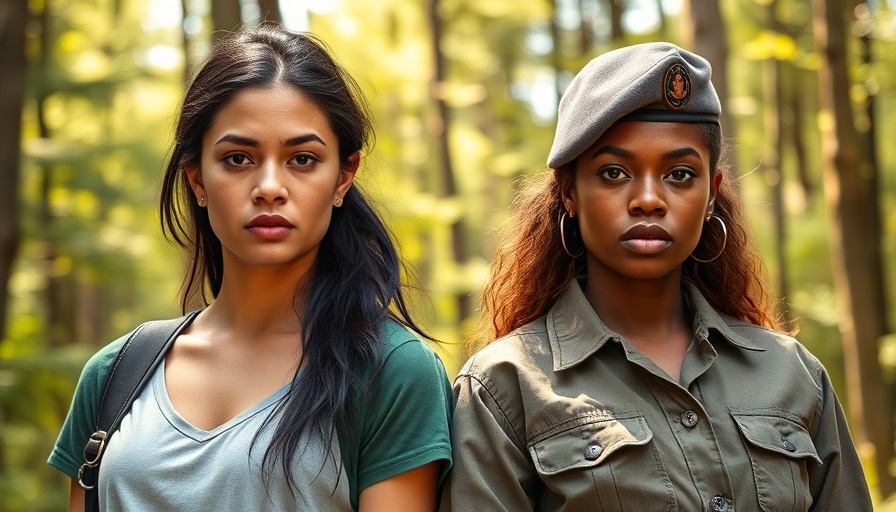
Understanding PTSD and the Female Veteran Experience
When we think of war films, our minds often gravitate toward combat scenes and thrilling action. However, "My Dead Friend Zoe" boldly pivots away from this norm by delving into the aftermath of war, exploring the profound impact of PTSD on female veterans. This poignant film, directed by Army veteran Kyle Hausmann-Stokes, provides a stirring insight into the emotional struggles faced by veterans returning from combat.
Breaking Ground: Women's Stories in War
Historically, narratives surrounding military experiences have predominantly featured male perspectives, often eclipsing the unique challenges that women veterans face. With women making up an increasingly significant portion of the armed forces—comprising nearly 16% of veterans by 2040—films like "My Dead Friend Zoe" shine a necessary light on their stories. As depicted in the film, the relationship between Merit and Zoe not only portrays their shared experiences in Afghanistan but also emphasizes the societal obstacles and internal battles faced by female warriors.
The Reality of PTSD: Statistics and Insights
PTSD is a serious issue for many veterans, particularly for those who have faced combat or military sexual trauma (MST). According to the Wounded Warrior Project, women veterans who have experienced MST are nearly three times more likely to suffer from PTSD than their counterparts who have not. In "My Dead Friend Zoe," this theme is echoed through Merit's imaginary interactions with Zoe, a haunting reminder of the trauma that lingers long after the battlefield.
The Power of Relationships: Healing Through Connection
The film also reveals the vital importance of relationships in the recovery process. Research shows that social support significantly impacts the mental health outcomes of veterans. Those veterans who report strong support systems experience lower rates of PTSD symptoms. The bond between Merit and Zoe, though complicated by Zoe's death, serves as a pivotal connection for Merit, offering her both comfort and torment as she navigates her healing journey.
A Dual Narrative: Past vs. Present
Director Hausmann-Stokes expertly employs a dual narrative to juxtapose Merit's experiences in active service with her present-day struggles. This storytelling technique elucidates the depth of trauma that accompanies a service member back into civilian life. As viewers, we gain insight into how war impacts not only the physical realm but also the emotional landscape of veterans.
Community and Resources: Turning Pain into Strength
The film is a reminder of the numerous resources available for veterans grappling with PTSD and other psychological challenges. With organizations like the National Center for PTSD and the Wounded Warrior Project, veterans can find vital support tailored to their experiences and needs. Awareness campaigns during PTSD Awareness Month help to illuminate available resources and foster community strength.
Confronting the Past: What Lies Ahead for Female Veterans?
As the landscape of military service continues to evolve, so does the understanding of mental health issues faced by veterans. "My Dead Friend Zoe" opens a dialogue about a crucial topic that is often pushed to the periphery. Films like this not only entertain but also educate and advocate for the unique experiences of women veterans, fostering a shared sense of empathy and support within the community.
To make a difference in your community, consider supporting local veteran services or mental health awareness programs that ally with our returning heroes. Together, we can help ensure that every veteran receives the understanding and assistance they need to heal.
 Add Element
Add Element  Add Row
Add Row 



 Add Row
Add Row  Add
Add 


Write A Comment